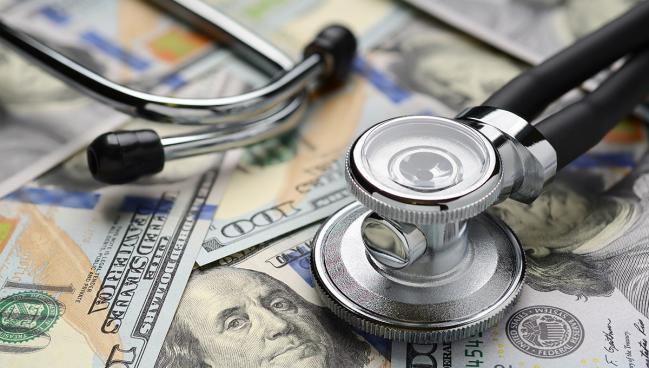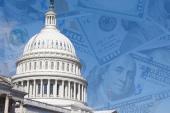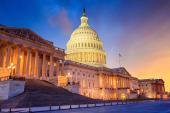Political Donations From ACC’s HeartPAC Approach Pre-January 6 Levels
The political action committee temporarily paused donations after the US Capitol attack 2 years ago, reassessing its process.

Donations from the American College of Cardiology’s political action committee, HeartPAC, are not yet at the level they were before the violent storming of the US Capitol on January 6, 2021, which led to a pause in contributions. But the amount of money going out to federal candidates on both sides of the aisle is increasing with a new process in place, according to the HeartPAC chair.
In the aftermath of the Capitol attack, many companies and organizations reassessed where their political donations were going and stopped sending money to lawmakers who played a role in disputing the election results that led to the insurrection.
The ACC was no different, and at the time said in a statement from HeartPAC leadership that it was “temporarily pausing all individual and leadership contributions. We will take this time to reassess and strengthen the scorecard used to evaluate potential HeartPAC recipients.” In the days leading up to the decision, the college had received some criticism for giving money to legislators who were ultimately involved in trying to overturn the results of the election.
The temporary pause in contributions lasted 2 months, after which donations started going out again, Andrew Miller, MD (Cardiovascular Associates, Birmingham, AL), current chair of HeartPAC, told TCTMD. During the lull, the 13-member executive committee of the political action committee developed a new rubric by which potential recipients of donations would be judged.
Miller pointed out that all money disbursed by HeartPAC comes from voluntary donations from ACC members, and not from dues.
According to OpenSecrets.org, HeartPAC gave a total of $504,000 to federal candidates in the 2019-2020 election cycle, slightly favoring Democrats (53.17%) over Republicans (46.82%), after raising $783,751.
After the temporary pause in donations and the reappraisal of the process of choosing recipients, HeartPAC gave a total of $390,500 during the latest 2021-2022 election cycle, again favoring Democrats over Republicans (53.39% vs 46.61%). The PAC raised less money than during the previous cycle ($621,398).
The new rubric HeartPAC’s executive committee uses to select who will get donations is not publicly available, but, Miller said, “we do look at things that are going to help us propel our legislation along, and those are things like leadership and demonstrated interest in our issues. There’s a number of metrics that we look at that would help us decide that this is going to be a place where we should put our money.”
In addition, he said that their processes can identify events that could potentially tarnish the brand of the ACC, and that, ultimately, the members of executive committee serve as “gatekeepers” who decide where to send money.
Miller stressed the importance of remaining nonpartisan when it comes to sending out donations to support the policy agenda of the college, and acknowledged that some ACC members will find names on the list of recipients that they disagree with politically.
“To be effective and move along the things that come out of our health affairs committee and to develop relationships in Congress that will help us with advocacy issues that come up, we need to be effective, and to do that, we need to support both sides of the aisle,” he said. “We personally have our own politics and we can give our personal money anywhere we want. The HeartPAC views itself as the cardiology party—we’re not red or blue and we are for the things that affect our patients. And as the cardiology party, we’re going to be bipartisan, or really nonpartisan.”
That might mean donations to people on both sides of the aisle that may displease some of the membership.
Explaining it that way, Miller said, has helped resolve some of the friction between the college and its membership that developed after January 6. “I think the majority of people have come around,” he said, noting that even though the amount of money raised by HeartPAC dipped in the aftermath of the storming of the US Capitol, it is on the rise.
As important as remaining nonpartisan is being involved as policy decisions are being made among lawmakers, Miller indicated, pointing to recent successes in helping to find solutions to reduce administrative burdens, enhance clinician well-being, and minimize cuts to reimbursements, particularly for electrophysiologists (EPs).
And over the next year, he said, there will be a reassessment of RVU values for interventional cardiology codes, similar to what happened for EPs last year. “It’s really important we’re at the table and having conversations with people” as this plays out, Miller said. “Advocacy has never been more important and getting into the game really does feel good. It’s something we can come together and do, and I think it’s going to be important for our patients and our profession.”
The American Medical Association also indicated that the events at the US Capitol would influence how its political action committee, AMPAC, would make decisions about contributions moving forward. The association didn’t respond to TCTMD’s request for comment, but information on OpenSecrets.org shows that AMPAC’s donations to federal candidates were roughly the same in the 2019-2020 and 2021-2022 cycles ($1,020,000 and $1,067,000, respectively); Democrats received most of the money in both cycles (55.93% and 62.00%, respectively).
Of note, the AMPAC site says the group “employs a ‘no-rigid-litmus-test’ policy when deciding whether to support a candidate, looking at their entire body of work and overall record on issues important to medicine. AMPAC encourages candidates to refuse contributions from tobacco companies as well as any organization that opposes evidence-based public health measures to reduce firearm violence. AMPAC believes every candidate for political office must support the democratic process and never take steps or support steps by others to subvert it.”
Todd Neale is the Associate News Editor for TCTMD and a Senior Medical Journalist. He got his start in journalism at …
Read Full Bio




Comments